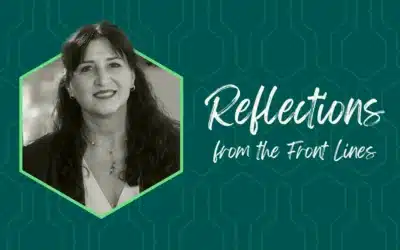It has been eight days since my last post. And ten weeks since I lost my sense of smell.
At the Human Services Campus we operate in COVID-mode, serving more than 800 individuals per day. We shelter nearly 700 people nightly in buildings. And this week the outreach team counted just over 700 people sleeping outside. We cannot shelter everyone overnight.
Positive COVID cases continue across clients and employees. Today I was in a group self-test circle due to a possible exposure. My first time testing at the same time, in one room ,with others. We all watched the clock and the lines on the cardboard. We all are negative.
Testing and vaccines continue for clients. The County’s isolation hotel continues. It all seems to continue, this COVID operation.
I met an 18-year old woman this week. She was alone. Her first day at the Campus. She tested positive and had conflicting information on previous tests and possible quarantine. She waited, first patiently, and then impatiently for transportation to the isolation hotel. I offered to call family for her, to see if someone could help her in another way, or at least provide some support. She said her parents didn’t want her any more. I asked about friends, and she said there were none to call. Maybe she had “burned her bridges.” Maybe systems failed her. Maybe there was much more to her journey. I spent the night thinking about her. Having not had children, nor raised children from birth to adulthood, I don’t have direct experience to know what level pushes a parent to tell their child they no longer “want” them. I know of many instances of family struggles and difficult situations with children. What I saw was a scared young woman, putting on a brave face, occasionally cussing, perhaps to demonstrate she was strong enough to handle the situation; and she was very conversational which also told me she needed someone to talk to. The interaction drew out some deeply embedded maternal instinct in me that wanted to stay with her until she was safely enroute to the hotel. Not knowing if that would be one hour or three hours, I chose to drive home, leaving her in very capable staff hands. We had briefly talked about the moon. When I saw it on my drive, I sent her a wish that she see the moon too later that night.
At the same time that we are sending people off the Campus to isolation hotels, bridge housing, and permanent housing, there are new people losing their homes and experiencing homelessness for the first time. Whether the young woman above was exited/ discharged from a program or system into homelessness, I don’t know. I do know that people are exited and discharged from hospitals and healthcare settings into homelessness every day. At times it feels like stakeholders want the homeless response system to expand/build/add services and staff to catch everyone who falls into a state of being unhoused. I ask, why do we let it be OK to discharge people from hospitals/ jails/ prisons/ foster care/ rehabilitation facilities into homelessness? Why is the social contract one that passes ownership of solving an individual problem from one system to another?
When there is a large spill on a kitchen counter, say for example half a pot of coffee. If you use a sponge to wipe up the coffee, you can’t absorb all of the liquid at once. You need to squeeze the coffee out of the sponge into the sink (or back into the pot if you might be desperate for the caffeine). And then you can use the sponge again to absorb more of the coffee. Depending on the size of the sponge, this could take multiple cycles.
The homeless response system cannot “absorb” all of the individuals and families falling into homelessness. And we can’t quickly “squeeze” the ones we pick up into housing, because there is a shortage of affordable housing. Our sponge is over-saturated with no outlet for those it has taken in. We have to stop the inflow of people into homelessness. We have to stop spilling coffee on the counter.
We need to help those who are in systems of care to return to a home when they are exited/ discharged. We need to help people living on fixed incomes, so that they can stay in the housing that they already have.
By no means am I suggesting that we stop serving those who are unhoused. I’m saying the long-term solutions are not in building out the homeless response system. The long-term solutions are in the pre-unhoused phase, or “preventing homelessness.” I have found that there are many non-believers of “homeless prevention.” Then let’s call it something else, or talk about it as “staying housed.” Talking about preventing the lack or loss of something does hurt my head and make my eye twitch. We aren’t “preventing homelessness,” we are “helping the housed stay housed.” It’s the upstream work that needs more attention.
We also need enough housing for everyone, choice of housing, housing that is “affordable” to people on fixed incomes, housing that is “affordable” for working people and their families. So when people do fall out of a system or have crises and lose their housing, we can assist them to find a new home.
Maybe if we see housing as healthcare, we can see that helping people to stay housed is healthy. Allowing and watching people fall out of housing is a travesty that leads to a health crisis. It’s not healthy, physically nor mentally, to be unhoused and unsheltered. It’s not healthy for a community to have hundreds and thousands of people unsheltered and unhoused.
Housing is healthcare. Housing is healthcare. Housing is healthcare.



